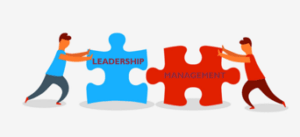By Dzigbordi Kwaku-Dosoo
In today’s rapidly evolving workplace, leadership is no longer about wielding power but about creating adaptive, resilient ecosystems where talent can thrive.
While our previous exploration highlighted the pitfalls of autocratic and laissez-faire leadership, this continuation delves deeper into the emerging leadership paradigms that are reshaping organizational success.
The Rise of Emotional Intelligence in Leadership
Modern leadership demands more than technical expertise—it requires profound emotional intelligence. Leaders who can genuinely understand, manage, and navigate complex human dynamics are becoming increasingly valuable. Emotional intelligence isn’t a soft skill; it’s a critical strategic advantage.
Research from Harvard Business Review indicates that leaders with high emotional intelligence are 90% more likely to successfully navigate organizational change. These leaders excel at reading team dynamics, managing interpersonal tensions, and creating psychologically safe environments where innovation can flourish.
Key emotional intelligence competencies include:
- Self-awareness: Understanding personal triggers, biases, and emotional responses
- Empathy: Genuinely comprehending team members’ perspectives and challenges
- Adaptability: Flexibly responding to changing organizational landscapes
- Relationship management: Building trust and facilitating constructive collaboration
Leadership in the Age of Complexity
The traditional linear approach to leadership has become obsolete. Modern organizations operate in complex, interconnected systems that require leaders to think holistically and systemically. This means moving beyond traditional hierarchical models to more adaptive, network-driven approaches.
Complex adaptive leadership involves:
- Embracing uncertainty as a natural state of organizational life
- Developing non-linear problem-solving skills
- Creating feedback loops that enable rapid learning and adaptation
- Cultivating organizational resilience through distributed decision-making
Technology’s Impact on Leadership Dynamics
Digital transformation has fundamentally altered leadership requirements. Remote work, artificial intelligence, and global collaboration demand leaders who can effectively manage distributed teams and leverage technological tools without losing the human touch.
According to a Gartner study, 82% of business leaders plan to allow employees to work remotely at least part-time post-pandemic. This shift necessitates leaders who can:
- Create cohesive team cultures across geographic boundaries
- Implement robust digital communication strategies
- Balance technological efficiency with human connection
- Develop trust without physical proximity

Ethical Leadership in a Transparent World
With social media and instant global communication, leaders are under unprecedented scrutiny. Ethical leadership is no longer optional—it’s a fundamental expectation. Transparency, integrity, and genuine commitment to organizational values have become critical differentiators.
Key ethical leadership principles include:
- Consistent alignment between stated values and actions
- Proactive addressing of systemic inequities
- Creating mechanisms for accountability
- Demonstrating genuine commitment to stakeholder well-being
The Generational Leadership Shift
As Gen Z enters the workforce, leadership models must continue evolving. This generation values transparency, purpose-driven work, and authentic leadership more than traditional hierarchical structures. They’re not just employees; they’re collaborative partners seeking meaningful engagement.
A PwC survey revealed that 87% of Gen Z professionals consider professional development opportunities more important than monetary compensation. This indicates a dramatic shift from previous generations’ priorities, demanding leaders who can:
- Provide continuous learning opportunities
- Create clear career progression pathways
- Demonstrate organizational values through actions
- Foster an environment of continuous feedback and growth
Sustainable Leadership: Beyond Profit
Progressive leaders recognize that organizational success extends beyond financial metrics. Sustainable leadership encompasses environmental responsibility, social impact, and ethical governance. Companies with purpose-driven leadership attract top talent and cultivate stronger brand loyalty.
BlackRock’s annual letter to CEOs consistently emphasizes that companies demonstrating genuine commitment to sustainability and social responsibility outperform traditional competitors. This requires leaders who can:
- Integrate sustainability into core business strategies
- Measure impact beyond financial returns
- Engage stakeholders in meaningful dialogue
- Drive systemic change through responsible practices

Building Resilient Leadership Capabilities
In an increasingly unpredictable global environment, resilience has become a non-negotiable leadership trait. Resilient leaders don’t just survive disruptions—they transform challenges into strategic opportunities.
Key resilience-building strategies include:
- Developing adaptive thinking frameworks
- Creating robust risk management protocols
- Encouraging experimental and iterative approaches
- Cultivating mental and emotional flexibility
The Neuroscience of Effective Leadership
Emerging neuroscience research provides fascinating insights into leadership effectiveness. Leaders who understand brain functioning can design more effective communication and motivation strategies.
Neuroplasticity research suggests that leadership skills can be deliberately developed through consistent practice, challenging the outdated notion that leadership is an innate, fixed trait. This means organizations can systematically build leadership capabilities through targeted development programs.
Traditional leadership training programs are becoming obsolete. Modern learning architectures focus on immersive, experience-based development that combines theoretical knowledge with practical application.
Innovative leadership development approaches include:
- Scenario Simulations:
Real-world leadership challenges
Practice decision-making skills
Low-risk environment for learning
- Cross-Team Exposure:
Rotate across different departments
Understand organizational complexity
Build broader leadership perspective
- Mentorship Network:
Connect with experienced leaders
Structured knowledge transfer
Diverse learning opportunities
- Micro-Learning Platforms:
Short, targeted learning modules
Immediate skill application
Real-time performance feedback
The next decade will present unprecedented leadership challenges. Geopolitical uncertainties, technological disruptions, and rapidly changing workforce demographics demand leaders who can navigate complexity with nuance and strategic vision. Successful leaders will need to develop global cultural intelligence, manage multigenerational and multicultural teams, balance automation with human creativity and create agile organizational structures.
Google’s Project Aristotle revealed that psychological safety is the most critical factor in high-performing teams. Leaders play a crucial role in creating environments where team members feel safe to take risks, share ideas, and be vulnerable.
Strategies for fostering psychological safety include:
- Modeling vulnerability and transparency
- Encouraging constructive dissent
- Celebrating learning from failures
- Creating inclusive communication channels
Leadership is no longer a destination but a continuous journey of learning, adaptation, and growth. The most effective leaders embrace uncertainty, prioritize human potential, and view challenges as opportunities for collective transformation. The future belongs to leaders who can blend strategic thinking with genuine human connection—those who understand that true leadership is about empowering others to realize their fullest potential.
Are you ready for TRANSFORMATION?
Dzigbordi Kwaku-Dosoo is a Ghanaian multi-disciplinary Business Leader, Entrepreneur, Consultant, Certified High-Performance Coach (CHPCTM) and global Speaker. She is the Founder and CEO of The DCG Consulting Group. She is the trusted coach to top executives, managers, teams, and entrepreneurs helping them reach their highest level of performance through the integration of technical skills with human (soft)skills for personal development and professional growth, a recipe for success she has perfected over the years. Her coaching, seminars and training has helped many organizations and individuals to transform their image and impact, elevate their engagement and establish networks leading to improved and inspired teams, growth and productivity.








